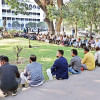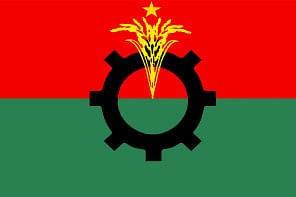Rushed trials raise concerns of political influence

Heightened activities are taking place at a number of courts in Dhaka as numerous cases of arson and violence against BNP and Jamaat-e-Islami leaders/activists are currently being tried. According to a report by this daily, hearings in these trials are running beyond normal court hours, extending till about 8-8:30pm almost every day. This is a rare occurrence in the court system of Bangladesh, as defence lawyers representing the accused have pointed out.
Cases as old as even a decade, which remained dormant for long, suddenly came to life a few months ago. The law minister told this daily that the government had instructed the prosecution to take steps for quick disposal of old cases, but claimed that the instruction was not specific to cases involving opposition leaders. But the reality tells a different story. A mid-level police officer revealed to this daily that the police have clear instructions from the government to finish off trial proceedings against members of BNP and other opposition parties before the upcoming general election.
Why this sudden rush? Up until July, the courts could not proceed with these cases because prosecution witnesses – all of whom are police members – did not show up to record their statements, even risking non-bailable arrest warrants. This raises the question: is the sudden desire to dispose of old cases merely for the sake of justice? Or is there an ulterior motive behind it? BNP leaders say that these court proceedings are being rushed to keep them off the streets during their anti-government movement, as well as to thwart any prospect of them contesting the election.
Their claims are not entirely unsubstantiated: in July, leaked minutes from an emergency meeting of the police top brass revealed that they had decided to pick "selective" cases to bring a maximum number of potential election candidates from the main opposition under conviction, as per a report published in July by the New Age. Over the years, we have also seen how BNP men have been drowned under cases often deemed to be politically motivated. Against this backdrop, the High Court's observation – that no one sentenced to more than two years in jail can contest any election – bears special significance for opposition leaders now on trial.
The timing and political implications of these developments suggest that the ruling regime could be abusing the legal system to potentially gain an advantage in the upcoming election, should it occur as planned. This, we must say, goes against the spirit of democracy, and likely hampers any chance of the nation having a fair and participatory election. We urge the authorities to ensure that due process is maintained in all legal matters, especially in political cases, at all times.


 For all latest news, follow The Daily Star's Google News channel.
For all latest news, follow The Daily Star's Google News channel. 









Comments